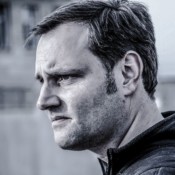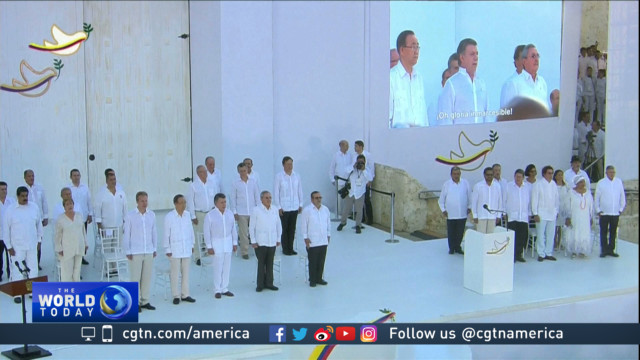Colombia’s presidential candidates are making their final appeals to voters. Five men are vying to become the country’s next leader.
The result could determine the fate of a 2016 peace agreement that ended a 50-year-long guerrilla war.
CGTN’s Toby Muse has details.
If right-wing candidate Ivan Duque becomes president of Colombia, he has promised to keep the country’s peace process in place, but he and his supporters want to see some major changes.
“The peace will be kept,” said Senator Maria Fernanda Cabal of the Centro Democratico party. “But of course, we need to make some changes.”
Duque wants to see stiffer punishments for the FARC leadership and bar them from running for office.
“They should go to jail for at least five to eight years,” insisted Cabal. “But the leader of the guerrillas says they will never do that. What kind of peace is that? Instead they are taking seats in our congress.”
As part of the peace deal, the FARC was given a small number of seats in congress and will face a justice tribunal, although most believe the leadership will not spend any significant time in prison.
Supporters of the peace accord fear the Centro Democratico may attempt to undermine the agreement. One prominent member of the party talked of ripping up the peace deal entirely.
The government and the FARC say that it must remain as it was negotiated.
“The deal was signed with the country, not with one particular government,” said FARC leader Sandra Ramirez.
The government and the FARC point out the constitutional guarantees included no modifications.
But if Duque were to take power, he could alter the peace process by changing the constitution itself.
Antonio Navarro Wolf, a supporter of the peace deal, believes the process could survive minor changes. But if it was gutted, to include imprisoning top leaders, he says thousands of lower-ranking ex-guerrillas could return to the mountains.
“They have homes and they could go back to producing cocaine,” said Senator Antonio Navarro Wolf. “So they would have places to go and money to live on. We could end up in a new period of conflict.”
The Colombian government is trying to start peace talks with a smaller guerrilla group, the ELN. If the deal with the FARC is changed, the rebels may wonder how much they can trust the government.
 CGTN America
CGTN America


